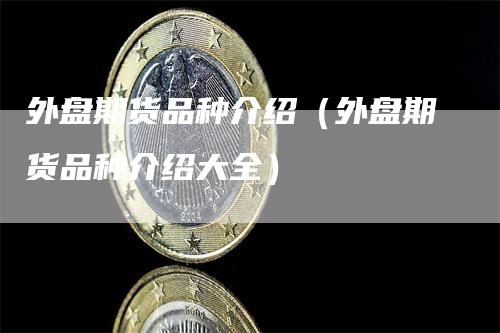
What are foreign futures?
Foreign futures are financial contracts that allow investors to buy or sell an asset at a specified price on a specified date in the future. These contracts are traded on exchanges outside the investor's home country, hence the term \"foreign futures.\" They provide global exposure and opportunities for investors to diversify their portfolios.
Why trade foreign futures?
Trading foreign futures offers several advantages. Firstly, it provides access to a wide range of asset classes, including commodities, currencies, and indices, allowing investors to diversify their investments and manage risk. Secondly, foreign futures often have extended trading hours, enabling investors to react quickly to global market events. Lastly, these contracts can potentially generate profits from both upward and downward price movements, allowing traders to benefit regardless of market direction.
What are some popular foreign futures markets?
There are numerous foreign futures markets across the globe. Some of the popular ones include:
- Chicago Mercantile Exchange (CME) in the United States: It offers futures contracts on various assets, such as equity indices, interest rates, commodities, and currencies.
- London Metal Exchange (LME) in the United Kingdom: It specializes in trading futures contracts on base metals like copper, aluminum, and zinc.
- Intercontinental Exchange (ICE) in the United States: It provides futures contracts on commodities, energy, equity indices, and interest rates.
- Tokyo Commodity Exchange (TOCOM) in Japan: It focuses on futures contracts related to energy, precious metals, rubber, and agricultural products.
These are just a few examples, and there are many more foreign futures markets available globally.
How can one trade foreign futures?
To trade foreign futures, investors need to open an account with a brokerage firm that offers access to the desired foreign futures markets. The process usually involves completing the necessary paperwork, providing identification documents, and funding the trading account. Once the account is set up, investors can use trading platforms provided by the brokerage firm to place buy or sell orders for their chosen futures contracts.
What risks are associated with foreign futures trading?
While foreign futures trading offers opportunities, it is important to be aware of the associated risks. The value of futures contracts can change rapidly, leading to potential losses. Additionally, factors such as global political events, economic reports, and natural disasters can significantly impact these markets. Foreign exchange risk should also be considered as fluctuations in currency exchange rates can affect the profitability of trades. To mitigate these risks, traders should conduct thorough research, implement proper risk management techniques, and seek advice from experienced professionals.
Conclusion
Trading foreign futures can be an exciting way to diversify investments, gain exposure to global markets, and potentially generate profits. However, it is crucial to have a solid understanding of the markets, manage risks effectively, and stay informed about global events. By doing so, investors can navigate the world of foreign futures with confidence and potentially achieve their financial goals.
 微信扫一扫打赏
微信扫一扫打赏
 支付宝扫一扫打赏
支付宝扫一扫打赏





